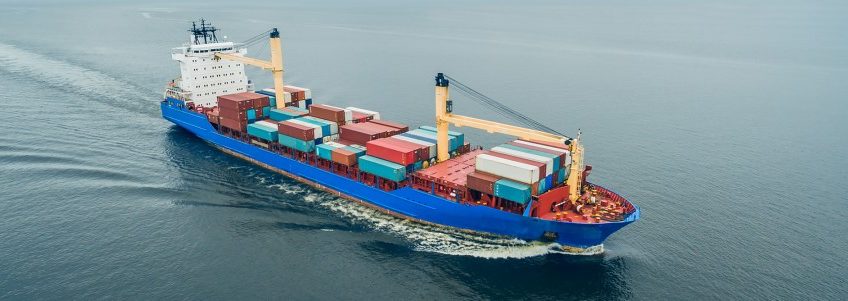NOW symposium “Zero Emission Shipping” brings together experts for sustainable shipping in the framework of the leading trade fair of the maritime industry: SMM 2018. LNG, battery-operated electric engines and fuel cell technology are low-emission alternatives to conventional marine fuels. The Federal Ministry of Transport and Digital Infrastructure (BMVI) supports projects on and investments in alternative energy systems through funding programmes.
Berlin/Hamburg, 4 September 2018 – How drive technologies with liquefied natural gas (LNG), batteries or fuel cells can be used for clean shipping and how ships can be supplied efficiently and emission-free with energy– that is the topic under discussion by experts on 4 September 2018 in Hamburg at the NOW symposium “Zero Emission Shipping – alternative energy systems for sustainable shipping” in the framework of the international leading trade fair of the marine industry, SMM 2018.
The strategic environmental and climate protection goals of the federal government as well as of other IMO member states, the specified limiting values for air pollutants and the expansion of emission control areas as well as increasingly stringent EU regulations, together with simultaneously growing transport demand, is increasing the pressure to act.
Dr. Klaus Bonhoff, Managing Director (Chair) of NOW GmbH, makes clear however:
“Alternative energy systems are technically ready for use and can already massively reduce emissions in maritime and inland waterway transport as well as in ports.
Ship drives for renewably manufactured liquid fuels like LNG are primarily suitable for ships with high energy demands on longer transport routes. Batteries and fuel cells are ideal for optimal energy use. Electromobile applications with batteries and fuel cells are promising in the short sea area and for inland waterway navigation. It is important to identify best practice solutions for each application case – for all technologies there are convincing demonstration and pilot projects.”
The Federal Ministry of Transport and Digital Infrastructure (BMVI) supports these projects and investment in alternative energy systems with funding programmes. Enak Ferlemann, Parliamentary State Secretary at the Federal Ministry of Transport and Digital Infrastructure:
“Together with the stakeholders, we wish to secure shipping as a sustainable means of transport for the future. International shipping companies know what the challenges are and accept them. The resolutions of the International Maritime Organization must now provide legal and planning certainty.”
The NOW GmbH is tasked with coordinating the funding programme and thus is the first point of contact for all queries.
LNG as a fuel – already now the low-emission alternative
Liquified natural gas (LNG) causes no sulphur oxide emissions (SOx). As an alternative to conventional, oil-based shipping fuels, LNG also enables a reduction of nitrogen-oxide emissions (NOx) of up to 90 per cent. Fine particle emissions (PM) are reduced by about 98 per cent. Furthermore, using LNG for onboard energy supply in port offers huge potential to improve the air quality for people locally. For example, by equipping a 1,400 TEO container ship with an LNG drive, the annual greenhouse gas emissions of 1,500 diesel cars and the nitrogen oxide emissions of 500,000 can be compensated for. The Federal Ministry of Transport and Digital Infrastructure (BMVI) has been funding the relevant equipping and retrofitting of marine vessels to LNG operation since 2017.
Batteries with electric engines – clean through renewable electricity
Electric engines that operate with electricity from renewable energies cause no emissions. Ferries or passenger ships, which undertake relatively short trips, are primarily suitable for battery-electric operation. The electrification of ferry traffic will contribute to achieving the national CO2 reduction goals on a municipal level. The first experiences in the operation of solar-electric passenger ships in municipalities are part of the programme. The funding of battery-electric mobility on ships will be achieved through the BMVI’s electric mobility funding guideline.
Fuel cells with electric engines – high range, no harmful emissions
Fuel cell technology can be used in the shipping sector for emission-free drives and for onboard electricity supply. The main principle: hydrogen – or reformed from other fuels such as methane, methanol or road diesel – is used via an electro-chemical reaction with atmospheric oxygen to generate electric energy. This is temporarily stored in batteries for further efficiency enhancement (“peak shaving”) and powers the electric engine. The federal government has been investing in projects for alternative energy systems with fuel cells in inland waterway as well as marine navigation since the introduction of the National Innovation Programme for Hydrogen and Fuel Cell Technology (NIP).
The NOW symposium “Zero Emission Shipping” presents convincing examples of applications in all sectors.


